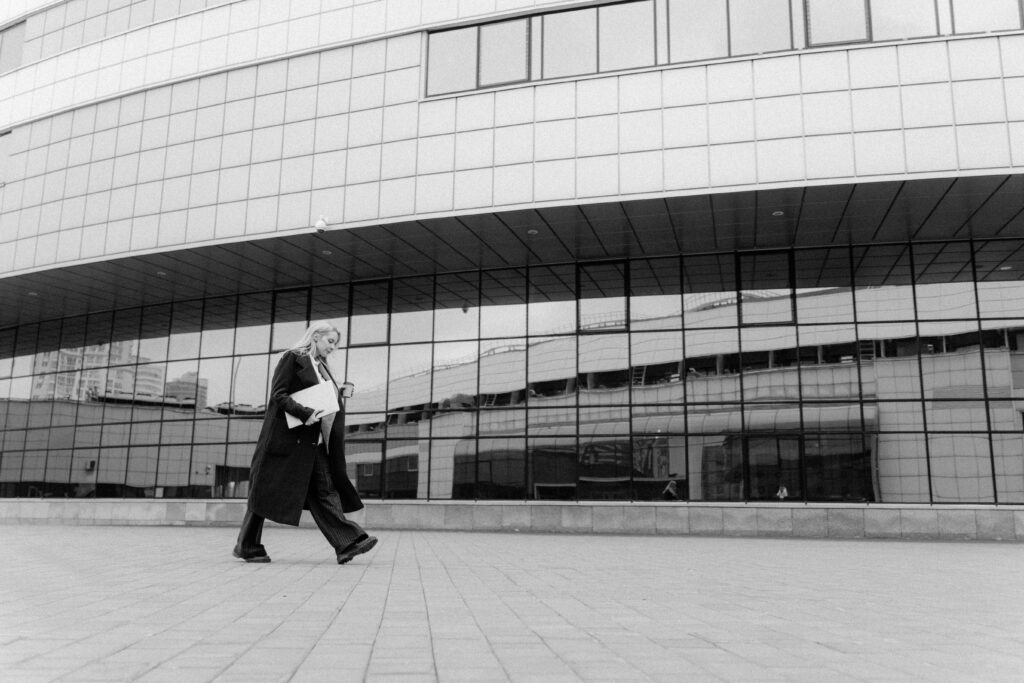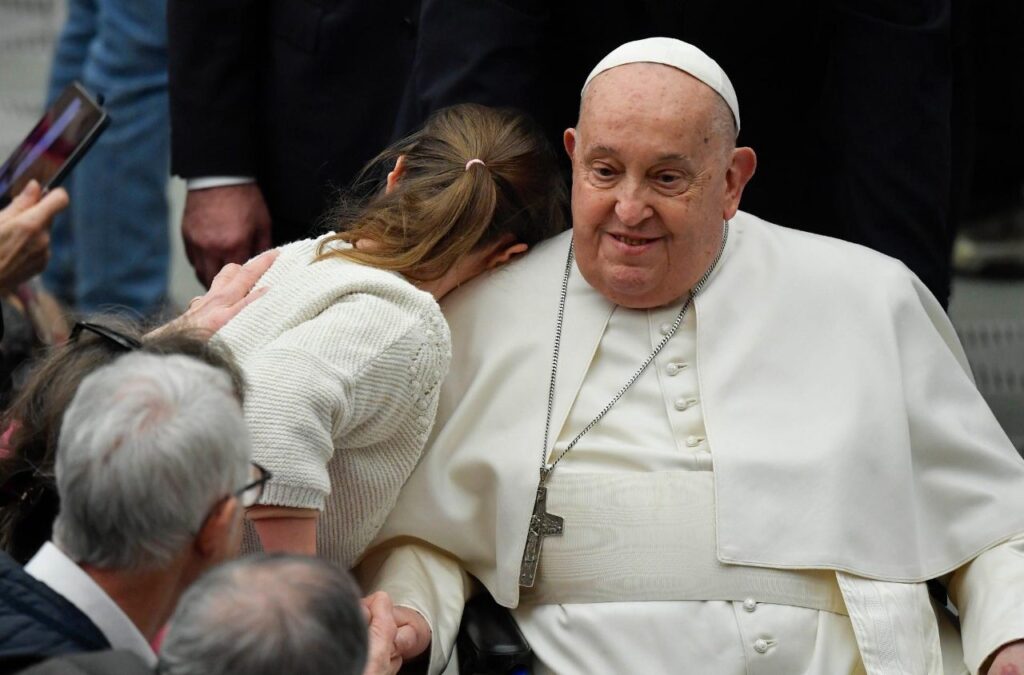Synodality against pastoral burnout
Challenges and opportunities in priestly life: between human fragility and spiritual strength

Our bishop, Salvador Cristau, from the Diocese of Terrassa, raised the issue of fragility with his priests. He told us that he brought this concern to the Spanish Episcopal Conference. Priests who hesitate in their vocation, those who abandon it, or even those who silently experience serious psychological difficulties should be a cause for concern. Both the Holy Father and the bishops insist on the issue of personal care. Just a week ago, Pope Francis said during his visit to Corsica:
“For my part, I would like to leave you with a double invitation: take care of yourself and take care of others.
The first: Take care of yourself, because priestly or religious life is not a “yes” we have pronounced once and for all. We do not live off of income with the Lord. On the contrary, the joy of the encounter with Him must be renewed every day; At every moment it is necessary to listen to his voice and decide to follow him, even in times of failure. Get up, look at the Lord, and say to him: “Forgive me and help me to go on.” This fraternal and filial closeness is very important in our life.
Let us remember this: our life is expressed in the offering of ourselves; but the more a priest, a religious, a deacon… gives himself, wears himself out, and works for the Kingdom of God, the more he must take care of himself. If they neglect this aspect, they will also end up neglecting those entrusted to them.
Spaces and moments are needed in which each priest and each consecrated person take care of themselves. And not with the aim of getting a facelift to look more handsome. On the contrary, these spaces and these moments are needed to speak with the Friend, with the Lord and, above all, with the Mother – please do not stop going to Our Lady – to talk about one’s own life and how things are going. Also have a confessor and a friend who knows you and with whom you can talk and make a good discernment. “Presbyteral mushrooms” are not good!
And this care includes something else: fraternity among you. Let us learn to share not only the tiredness and the challenges, but also the joy and friendship among us.
In the meeting with our bishop, we talked about breaking the loneliness into which the priest often sinks and the need to know how to ask for help. Some colleagues spoke, in urgent cases, of the possibility of having a kind of telephone or person available for extreme cases. Although the idea is good, the problem is that when one is ill, it is so ill that part of the problem is precisely that, recognizing the fragility and asking for help.
Raising the subject can be therapeutic in itself, although I allow myself to venture that, as is often the case, sometimes those who may need help the most are not necessarily interested in reflection. It is like when the celebrant at Mass complains about those who do not attend, precisely addressing those who have come.
From my point of view, and with the experience of many years as a therapist, I believe more in prevention than in cure when everything has already broken. The cases of broken vocations are often the part of the iceberg that is visible, difficult to repair.
When we speak of fragility we are referring at the same time to the destructive element that causes the wound.
In this reflection we are ignoring cases of serious psychiatric difficulties, which in many cases have been confused with the vocation, and although they could have evolved towards improvement, they did not.
What elements form part of the “pressure” that attacks the vocation and causes those damages that become wounds?
An important part is, as the Pope and the bishops tell us, neglecting the spiritual life.
As regards the environment and pastoral methods, it is necessary to read them from a place of humility and fragility in order to accept personal limitations in a healthier way.
Our bishop commented that the phenomenon of fragility was occurring in all the neighbouring dioceses and was affecting mature young priests. That is, those from whom greater pastoral production was expected, if I may use the expression.
I propose some points for discussion or reflection.
First. The denied secularisation. It could be depressing to start from the loss of relevance of the church in society, and even to attribute to dark interests the attempts to make the message of Jesus invisible.
Denying the loss of religious cultural elements and acting as if the rest did not exist is what we call hysterical mourning. I deny reality and, therefore, the loss. In Spanish, we say “eyes that don’t see, heart that doesn’t feel”.
The Pope insists on being a significant minority. But we do not fully accept this. For example, we say “I have a parish of fifteen thousand inhabitants.” Although all are subject to evangelization, the reality is that very few are willing to listen. We should say “my community is five hundred.”
Avoiding reality leads to permanent frustration, since the difference between the parishioners we believe we have – fifteen thousand – and the reality – five hundred – can lead us to a feeling of failure.
Second. Reconcile ourselves with failure. Obviously, it seems that this implies remaining inactive in the face of difficulties. This would be taking refuge in pessimism to excuse any effort. But feeling shamefully unsuccessful makes us hide our defeats, our feelings of impotence, and then the fruitless result of our actions deteriorates our being. We can feel like bad shepherds.
Third. Flee from triumphalism. It is typical in pastors’ meetings to talk about achievements in numbers, as if it were a championship. I remember that the previous parish was located in a peripheral neighborhood, small in size. We were an invisible community for the rest. Sometimes we lack the perspective of other realities that are not numerical, both in relation to people and to the economy. Discovering these other realities can be interesting.
Fourth. Be competent, not competitive. Comparing ourselves both to overcome the “adversary” and to base our own worth on achievements can hurt and reduce the person and the vocation to a numerical rating. In priests’ meetings, it can happen that we expose oversized achievements that place us above others, when the reality may be the opposite.
Fifth. Look also at other family, social, political and even religious realities, as possible, even if they do not coincide with our creed. I am not referring to relativism, but to understanding the other, even if different. Within the same church, this Manichean separation between good and bad can occur, more typical of a sectarian attitude than an ecclesial one. Sometimes clothing becomes a classification, for example. Knowing others is the bridge to getting to know us.
Sixth. Pastoral work is a long-distance race, more than a sprint. A long-distance race sees the goal in the distance and requires trusting in the march without expecting the immediate result. Running up the mountain carries the risk of slipping or exhausting yourself. And resuming the climb after a fall is more difficult.
Seventh. The poverty of human and social resources should not translate into unwanted loneliness. In Spain, it was common for more people to live in the parish house, in addition to the priest. This meant that selfless housekeepers or relatives made the rectory a home. The working world, fortunately, has changed. Fair labor laws no longer allow having someone at home all day with a low salary. One day the conditions in which many priests live should be reviewed. Houses in need of improvement, schedules incompatible with a relatively healthy life, scarcity of resources for personal care, etc. We agree that there are many families who live in worse conditions. Something that requires fighting to prevent this from happening. A topic that goes beyond the scope of this article. But it should make us think that the highest rate of mental illness occurs in the poorest environments. The environment, domestic resources and personal care are fundamental for good mental health.
Eighth. Intergenerational synodality. From the vantage point of the third age, it is observed that, although the methods and forms are novel, it is often noted that the pastoral experience of the elderly is taken as something outdated, that has not worked and is simply tolerated. Here the comments made in point five come into full play, as regards the intergenerational dialogue of pastors. Synodality is necessary to give more consistency to pastoral practice. Years ago, when there were more vocations, a period of coexistence with the older priests – parish priest and vicar – was required, where experiences, desires and ways were shared. This intergenerational synodality, with the scarcity of vocations, is lost.
Ninth. Being and transmitting while being well. Our bishop, when raising the issue of fragility, recommended the help of a spiritual director and psychological care as two necessary and complementary areas. Obviously this is so. Although pastoral work, personal life and psychological needs should not be separated as something that corresponds to different aspects of the individual. Rather, everything interacts. Paraphrasing McLuhan, “The medium is the message” means that the form of a medium is embedded in any message it transmits or transports, creating a symbiotic relationship in which the medium influences how the message is perceived. The message of the Gospel is transmitted through the community presided over by its ministers. Being well in order to transmit well, making the Gospel itself the source of goodness, implies that spiritual direction understands psychology and that what is spread and worked on is the healthiest and most wholesome for those who transmit and for those who receive. Sometimes I have asked young people how they see the priest and they really see us with a bit of pity.
Tenth. Real synodality. This requires that synodality not only reach different generations but also different tendencies. As well as different facets of personal, domestic, medical, social, psychological and pastoral life. Too much opacity makes it difficult for us to help each other and for them to help us. Together it is more difficult to fall, or better yet, with more support it is easier to get up. Walking together.
Related

Reversing Social Deterioration: A Task That Begins in Business Management
Alejandro Fontana
25 April, 2025
4 min

The Revolution of Tenderness
María Elizabeth de los Ríos
25 April, 2025
3 min

His Hope Does Not Die!
Mario J. Paredes
24 April, 2025
6 min

The Religious Writer with a Fighting Heart
Francisco Bobadilla
24 April, 2025
4 min
 (EN)
(EN)
 (ES)
(ES)
 (IT)
(IT)

